- Resume Tips

How to Include Public Speaking Skills on Your Resume (+ Examples)

While it might send you into a spin and get your knees knocking at the very thought of having to stand up in front of people and give a presentation, the skill of public speaking is considered a valuable asset within many professions. Public speaking on your resume is a great quality to add to your repertoire. Many employers place a premium value on public speaking skills.
Candidates who possess polished and articulate public speaking skills are often placed in prominent roles within a company, with many finding themselves on a fast-track to securing leadership positions. This is because a leader often needs to speak and present to a roomful of people. You can’t ask someone who’s shy and retiring to do this. Or someone with a distinct lack of confidence. So you turn to the employees who have shown promise and know how to hold a crowd.
But what if you are angling for another role? How do you include public speaking skills on a resume?
No need to fret. You have come to the right place. We have the know-how you need to make employers aware of your valuable communication style by showing how to present public speaking on your resume.
What is public speaking?
First up, let’s quantify what public speaking actually is. It is the ability to stand up in front of an audience and deliver an oral speech or presentation. It works whether that is a live audience or a remote one, as you are still presenting to a large number of people in public.
It can be used to sell a product or a service to a client, galvanize your team, or pitch for a new contract. Presentations can incorporate many different topics and have many different goals – to entertain, educate, inform, or even influence listeners.
The presentation needs to be engaging, powerful, and memorable. You have got to hold the audience in the palm of your hand so as not to lose their interest. These are great assets to have throughout your career.
These types of presentations can be the difference between failure and success. So, presenting information effectively and clearly is key when connecting with your audience and getting your message out there.
Why do public speaking skills matter?
It’s important to understand why public speaking skills are in such high demand. For someone comfortable with communicating ideas effortlessly, public speaking skills might seem like something that everyone can do, at the drop of a hat. After all, we are communicating with other people every single day of the year.
However, lots of people are not that comfortable when speaking in a public setting. Many shrink from being called upon in class, business, or conference meetings, or other settings where there is a large group. Others are wary of being asked to make presentations, train up other employees, or take on a role that puts them under the spotlight.
Call it stage fright, if you will. The average professional just isn’t all that excited about being the center of attention in any training session or discussion. And employers understand that fact. Most organizations have dealt with employees who struggle to communicate ideas when they’re put in those types of settings. As a result, those employers recognize just how rare and important public speaking skills truly are--and really value those job candidates who possess them.
Read our experts' opinion on the best skills to put on your resume in 2023 .
Public speaking and communication skills list
Unlike some types of skills, public speaking is not a single skill that you can simply list on a resume. Instead, public speaking skills encompass a variety of skills that combine to make you come across as an effective public communicator on your resume . Moreover, you are unlikely to find too many job postings that specifically ask for public speaking skills.
Instead, many of these postings will mention relevant key skills that might make you an effective public speaker. By learning to recognize these communication capabilities, you can more effectively convey your public speaking ability to a potential employer.
They include:
The ability to read your audience
One of the most important public speaking skills is the ability to accurately read your audience, or “read the room” as this modern phrase sums it up, by picking up on subtle, nonverbal cues of your attendees. You should be able to determine what they need to hear, adjusting your communication during the speech to accommodate their reaction. Do they seem engaged? Are they visibly bored? Restless? Confused?
A speaker who can read the room well knows how to stay on the right track to get across their message.
An articulate presentation of ideas
Are you an articulate speaker? In this scenario, articulate doesn’t just mean the ability to speak clearly. It means being able to convey complex ideas in an easily understood manner. If your skills include being articulate, be sure to mention those attributes of public speaking in your resume.
An engaging presence and style
Do you command presence when you are on a stage, enter a room, or during a meeting? Have you got that certain je ne sais quoi or X factor? The best public speakers, trainers, and educators have an engaging way about them. They also have a style that captures and sustains the attention of any audience. Employers can always utilize employees with these types of public speaking skills.
The ability to write a speech or presentation
Whether you’re a solid writer or someone who composes presentations on the fly, based on something you scribbled on the back of an envelope 10 minutes ago, composition skills are critical. If your public speaking skills include the ability to compose presentations, be sure to convey that information on your resume. And don’t forget to include key composition skills like research ability, organization of ideas, and storytelling.
Knowledge of presentation technology
These days, no set of public speaking skills is complete without some sort of familiarity with technology. For example, skills in this area include the ability to create presentation slides and manage the functional operation of a presentation.
But it can strike horror into the heart of any audience member when a speaker stands up, declaring, “I’ve just got 100 slides to get through this morning.” While PowerPoint presentations are commonly used for seminars, meetings, and other public speaking engagements, keep these to a minimum, reduce the number of words, and pack them full of images.
Your slides should not make that much sense without you telling the story alongside. You want members of the audience to be focused on you speaking--not on the slides.
Key Takeaway
KEY TAKEAWAY
Don't just say that you have public speaking skills. Instead, describe those specific skills that demonstrate your oratory abilities.
Job descriptions might mention leading meetings, presenting information, or speaking at conferences. This can encompass many job titles, such as teachers and educators, managers, and sales and marketing positions.
Examples of public speaking skills on a resume
Now that you have a clearer idea of what public speaking skills are, let’s put it into practice by showing off some examples of how to include public speaking on your resume.
You can tailor the examples below to suit your own situations, positions, and responsibilities.
Showcases well-honed public speaking skills, developed over the course of a 10-year career as a sales trainer, marketing consultant, and seminar speaker.
Presented technical studies and project proposals on a regular rolling programme across the year at ABC Corp.
Created and led the mentor advisory board at XYZ Inc, training more than 100 corporate mentors.
Conducted client / employee workshops for ABC Corp on a bi-annual basis.
Skilled in presentation composition, communications technology including PowerPoint, and engaging, articulate audience presentations.
Final thoughts
Public speaking skills can be a quality that sets you apart from job search competitors. When you recognize that fact, and properly include them in your resume, those skills can be the key to landing you an interview and the great job that you deserve.
Best of luck with your ongoing job search.
Still not quite sure how to add public speaking onto your resume? Well, it’s your lucky day. Delve into a freebie by uploading your resume to ZipJob’s free resume review and see where it takes you.
Related posts:
Top 15 Skills Employers Are Hiring For in 2023
What to Wear For a Virtual Interview: 7 Tips to Impress
The 100 Best Jobs For 2023
Elizabeth Openshaw, Editor & Content Writer, Elizabeth Openshaw, Editor & Content Writer
Elizabeth Openshaw is an Elite CV Consultant with over 12 years of experience based in Brighton, UK, with an English degree and an addiction to Wordle! She is a former Journalist of 17 years with the claim to fame that she interviewed three times Grand Slam winner and former World No.1 tennis player, Andy Murray, when he was just 14 years old. You can connect with her at Elizabeth Openshaw | LinkedIn .

Our resume services get results.
We’ve helped change over 30,000 careers.
Get a free resume review today
Our experts will review your resume’s grammar, layout, and ability to pass ATS — all free and delivered straight to your inbox.
PROTECT YOUR DATA
This site uses cookies and related technologies for site operation, and analytics as described in our Privacy Policy. You may choose to consent to our use of these technologies, reject non-essential technologies, or further manage your preferences.
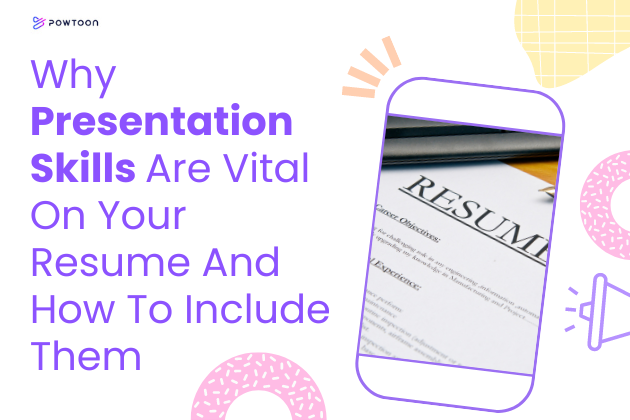
Why Presentation Skills Are Vital on Your Resume and How to Include Them
Whether you’ve just entered the workforce and are drafting your resume, or you’re changing careers and updating your resume accordingly, it’s important not to overlook certain skills that could make you stand out among the competition when applying for jobs. For example, many job seekers don’t realize how valuable presentation skills can be.
The following guide will help you better understand why cultivating presentation skills can make you more attractive to a potential employer. It also offers tips for how to highlight these skills in your resume naturally.
Why Presentation Skills Are Important on a Resume in 2023
There are many potential reasons why an employer might be happy to see that you have presentation and public speaking skills. The following are just a few noteworthy examples:
Remote Work May Require Strong Communication
Someone with presentation skills is like someone who’s a strong communicator in general. They may have the ability to explain complex topics or generate enthusiasm among their fellow team members through their words, voice, and overall energy when delivering a presentation.
This is particularly important now that remote work is becoming increasingly common . In an age when employees may not be sharing the same office, it’s helpful to have workers who can communicate effectively, even when doing so through video chat.
Presentation Skills Overlap with Research Skills
Highlighting strong presentation skills on your resume is a good idea, even if you’re not necessarily applying to the types of jobs that will require you to deliver presentations very often. Quite simply, when employers see that someone is able to deliver impressive presentations and speeches, they might assume they have other skills that relate to public speaking.
For instance, creating and delivering a quality presentation often requires conducting thorough research. Even if you have a strong stage presence, a business presentation won’t make the right impression on your audience if it doesn’t contain valuable and practical information. Thus, if a potential employer looking at your resume sees that you have presentation experience, they might conclude that you also can thrive in a research role.
Growth Potential
When you begin working for a company, you may not have any responsibilities that involve firing up a team or attempting to attract investors. However, if you continue to grow in your career, you may end up in a role that requires you to be charismatic in front of an audience.
This is yet another reason why including presentation skills on your resume may be a wise idea. Again, these skills might not have much practical value right now. But, if you continue to move up within a company, they may become increasingly applicable and relevant. An employer who sees that you have presentation skills may, therefore, think you’re the type of candidate who has the potential to become a manager or team leader someday.
Presentation Skills Overlap with Organization Skills
Again, if you include presentation skills on your resume, you may be subtly indicating to a potential employer that you also have strong research skills. In addition, people with reliable presentation skills tend to be quite organized.
Putting together an impressive presentation is, in fact, a remarkable feat of organization. No matter what topic you’re presenting, you need to condense your material into a format that ensures your audience absorbs and retains the information. This isn’t necessarily an easy task. If it’s a task that you completed successfully on multiple occasions in the past, an employer can safely assume that you’re a fairly organized person.
Organizational skills are actually one of the best presentation skills to have. When you place too much emphasis on getting comfortable with public speaking, you may forget to emphasize developing quality presentation content.
Good Presenters Are Good Marketers
Keeping someone’s attention on you during a presentation is also challenging for many. In our digital age, we are more distracted than ever, and research confirms this .
If you’re able to capture the attention of an audience and maintain it long enough for them to absorb valuable information from a presentation, you have a unique skill that’s growing increasingly valuable. This skill can translate to strong marketing abilities. An employee who knows how to grab an audience’s attention during a presentation might have ideas for getting the attention of customers. An employer would likely find this quality appealing.
How to Highlight Presentation Skills on Your Resume
Ways you might indicate to an employer that you possess strong presentation skills include the following:
Highlight it in Your Skills Section
This is an obvious choice, but it can be effective. In the section of your resume where you may list special skills, include presentation skills as one of them. If a potential employer is looking for someone with presentation skills, the fact that you included them on your resume may prompt an employer to ask more about this topic during your interview. This may give you a chance to expand on the subject.
Describe Your Experience
You may consider this option if you worry that simply listing public speaking as one of your special skills isn’t enough to clearly demonstrate to an employer that this genuinely is a valuable skill you may bring to the table. Under the resume section, where you might describe relevant experience, describe in clear terms how you have experience with public speaking and why you think that experience will help you succeed in the job you’re seeking.
Include a Portfolio
Do you think presentation skills will actually play a vital role in your work if you get a job to which you’re applying? If so, consider submitting a portfolio including presentation materials (such as slideshows and videos) that you’ve developed in past roles. These materials can show that presenting in front of others is a responsibility with which you’re very comfortable.
All that said, even if your presentation skills are currently lacking, you can still learn to develop them by studying creative presentation ideas and reading guides on how to improve presentation skills . If you make this a priority, you’ll equip yourself with a skill set that can help your resume make the right impression on employers.
Powtoon Improves Presentations With Video Content
A simple way to improve the quality of your presentations is to generate strong video content for them. Powtoon makes this easy, allowing even beginners to produce expert-quality videos. Sign up today to learn more!

- Latest Posts
Hanna Abitbul
Latest posts by hanna abitbul ( see all ).
- The Best 13+ AI Video Editors of the Year - February 22, 2024
- 10+ Best AI Video Generators of 2024 [Complete Review] - February 22, 2024
- Boosting L&D ROI with Associative Learning: 5 Effective Strategies and Best Practices - November 14, 2023
- How AI-Infused Personalized Learning Content Can Enhance Employee Knowledge Retention - November 12, 2023

5 Skills You Need to Become a Successful Video Maker

Business Presentation Examples to Help You Improve Your Presentation Skills

Tips for Giving a Powerful Interview Presentation

How to Make A 3D Animation With an Animation Maker

Creative Presentation Ideas to Impress Your Audience

How to Choose the Best Motion Graphics for Your Business

Thank you for your interest in Powtoon Enterprise!
A solution expert will be in touch with you soon via phone or email.
Request a demo
By submitting, you agree to our Terms of Use and Privacy Policy.
Public Speaking Skills and How to Describe them on Your Resume?
Here are the top ways to show your Public Speaking skills on your resume. Find out relevant Public Speaking keywords and phrases and build your resume today.

Is your resume ATS-friendly?
Drop your resume here or upload a file to find out if the skills in your resume are readable by an ATS.
In This Guide:
What is public speaking, why is public speaking important on your resume, what skills, activities, and accomplishments help you highlight your public speaking, public speaking skills: key takeaways for your resume.

Public speaking is the ability to deliver an oral presentation or speech to a live audience. Public speaking is an important skill for many professions. People who develop effective presentation skills can become the presenter everyone listens to.
Public speaking is a valuable ability whether you are trying to sell a client or energize a team, the power of your presentation skills makes the difference between success and failure. Presenting information clearly and effectively is a key skill to connecting with your audience and getting your message out.
Public speaking is the foremost ability in businesses, education, and the public arena. Public speeches can cover a wide range of topics and have many goals - to inform, educate, entertain, or influence the listeners. Over the years, public speaking in communication has played a major role in education, government, and business.
Many employers place an especially high value on public speaking skills. Candidates with public speaker skills are often placed in a higher position in the company. They present leadership and the ability to influence their coworkers and clients.
Companies always look for employees who can deliver clear and engaging presentations, no matter what department they will work in.
The spoken word can be even more powerful than the written word in the hands of the right speaker. Ideally, every employer should present a good level of communication and presentation skills, that’s why you should consider showcasing your public speaking skills on your resume.
You can do that by emphasizing some skills that can be associated with speaking in front of a small or large audience. To help you with that, we made a list of relevant skills that will help you highlight additionally your public speaking skills.
Including public speaking skills on your resume can be something that sets you apart from the rest of the candidates. Check out the public speaking skills, which can be the key to landing you the job you want:
Communication is the skillset that you should emphasize the most. Present your communication skills by saying that you can clearly explain complex concepts to a wide range of people, or how comfortable and confident you are in speaking to a small or large groups.
Analytical skills are necessary skills for public speaking. The ability to gather, understand, and break down data can help you more easily present and report the results of the analysis to a broad audience.
Planning skills are the key to a great presentation or public speech. Demonstrate your ability to accurately estimate the time and effort required to complete task/presentation. You need good planning skills to prepare, not only, your speech, but also your technical equipment.
Writing is an essential skill in the workplace. Strong writing skills help you prepare an outstanding presentation and write speeches that can sell, inspire or inform your audience.
Presentation skills are the ability to organize slides and content in a way your audiences can understand. It also includes some technical skills like knowledge of presentation software like Microsoft PowerPoint, Google Slides, Keynote and more.
How to demonstrate public speaking on your resume:
- Mention your good communication skills on your resume summery.
- Demonstrate your writing and presentational skills.
- Use specific details about your experience to show your achievements and skills.
- In the skill section, list your presentational software skills.
Example 1: Demonstrate public speaking in the experience section
- • Responsible for preparing over 10 statements per mount and addressing radio/TV media regarding the clients' current or upcoming events
- • Coordinate and host over 20 public speaking engagements
- • Conduct Product demonstration and application training for customers, new employees and freelancers
- • Prepare concepts for new clients that promote their brand via commercial spots
The resume experience section is the place to demonstrate best your public speaking skills. Ideally, you want the experience section of your resume to showcase the growth of your skillset.
In the provided example of the Client Relations Spokesperson, we can see first that a hint for a public speaking is in the job title, which shows that this candidate is comfortable speaking to a large audience and have the needed knowledge to do it.
They also demonstrated writing skills specifically for public speeches. In this section, they highlight their abilities and accomplishments in participating in the organizing of public speaking events. The provided examples show also their planing skills and presentational skills.
Example 2: Demonstrate public speaking in the resume summary section
This resume summary demonstrates public speaking without mentioning it. This is a good example of how you can demonstrate your communication abilities by emphasizing some skills associated with speaking in front of an audience.
From this example, the hiring manager can quickly understand that this job applicant can deliver an oral presentation or speech to a live audience

Example 3: Show your public speaking skills in your achievements sections
When listing your achievements on your resume, make sure that you include time frame, scale, or results.
This example demonstrate how good communication can earn the company money, a good name, or save resources. Public speaking is not only for special events, it is also about internal communication and the ability to present information to your team or more than one department in the company.
From this example, the recruiter can conclude that this applicant is comfortable to speak in front of coworkers or clients.
- Public speaking continues to be an important skill for many professions, and employers value candidates who possess those abilities.
- Demonstrating public speaking skills on your resume can set you apart from the rest of the candidates.
- Public speaking is not a single skill, it comprises a variety of skills, like communication, writing, planning, and even analytical skills.
- You can emphasize the skills associating with public speaking to display your confidence and abilities in delivering a successful oral presentation to the audience.

- Resume Skills
CV på en sida: 3 exempel som visar hur effektivt det är
Don't worry, mourinho... enhancv will help you find another club, choosing a marketing career path, should you have hobbies & interests on your resume, cover letter vs. resume –what's the difference, how to answer the “what makes you unique” interview question (with tips and examples).
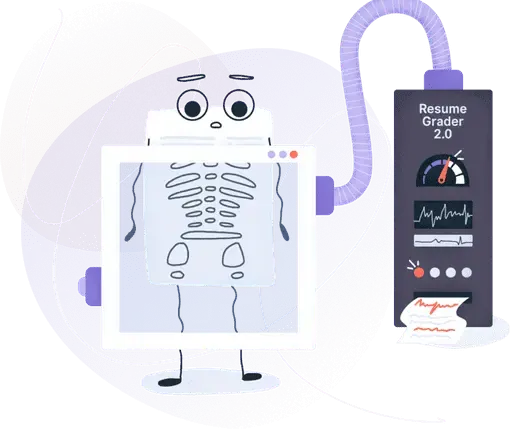
Find out how you have showcased your skills & optimize your resume
- Create Resume
- Terms of Service
- Privacy Policy
- Cookie Preferences
- Resume Examples
- Resume Templates
- AI Resume Builder
- Resume Summary Generator
- Resume Formats
- Resume Checker
- How to Write a Resume
- Modern Resume Templates
- Simple Resume Templates
- Cover Letter Builder
- Cover Letter Examples
- Cover Letter Templates
- Cover Letter Formats
- How to Write a Cover Letter
- Resume Guides
- Cover Letter Guides
- Job Interview Guides
- Job Interview Questions
- Career Resources
- Meet our customers
- Career resources
- English (UK)
- French (FR)
- German (DE)
- Spanish (ES)
- Swedish (SE)
© 2024 . All rights reserved.
Made with love by people who care.

Press Enter to search
Make a Splash With Presentations on Your Resume
A quick but detailed guide on how and when to include presentations on a resume, including resume templates and examples.
2 years ago • 8 min read
Public speaking isn’t for everyone — which is why, if you have experience presenting in front of a crowd, you should definitely include it in your resume.
You can list presentations in your work experience section, resume summary, or in a separate ‘Presentations’ section, depending on how relevant they are to the job you’re applying for.
In this article, we’ll discuss what presentation skills to include on your resume, how and where to list presentations, and how to tailor your presentation skills to your desired industry.
How to add presentations to your resume
Let’s start with a few quick steps for adding presentations to your resume:
- Choose where you’re going to list presentations. This could be in your work experience , resume summary , or in their own section (more on this later).
- List the name or topic of the presentation.
- Specify where you presented or who you presented to.
- If it was an external presentation, include the name and date of the event.
- Add any relevant awards or publications .
- Use a clear action verb like “presented” so your presentation skills stand out to anyone quickly scanning your resume.
- Upload your resume to a free resume checker for personalized suggestions on making your presentations stand out to a hiring manager.
Now let’s take a look at some concrete examples of what presentations should look like on your resume.
What presentations to include on your resume
The types of presentations you can include on your resume include traditional styles like PowerPoint presentations, client briefings, and conference speaking, as well as digital and remote presentations, such as Zoom conferencing and Google Slide presentations. Both conventional and digital methods demonstrate your ability to convey information through the desired format and showcase both soft and hard skills.
The recent transition towards more remote work has brought digital presentation styles like webinars, online talks, virtual events, and social media live sessions to the forefront. These modern formats highlight both adaptability and remote/technical experience.
Whatever presentations you choose to include, ensure the skills you’re showcasing are targeted and relevant to your application.
Examples of how to put presentations on your resume
There are a couple of different ways of listing presentations on a resume:
- In your work experience bullet points
- In a ‘Presentations’ section of your resume
- (Optional) In your resume summary
Not sure which choice is best for you? Here’s a brief overview of the pros and cons of each option, including examples for you to follow.
Including presentations in your work experience bullet points
Include presentations in your work experience bullet points if you regularly presented to colleagues, clients, or external stakeholders as part of your job.
Include at least one bullet point detailing what you presented, who you presented it to, and, crucially, any quantifiable metrics . Emphasize the size of the audience, feedback scores, number of presentations, or tangible impact on the business to clearly demonstrate the scope and effectiveness of your presentations. Start your statements with powerful action verbs to make your bullet points memorable and impactful.
- Presented strategic changes in portfolio and marketing plan to C-suite executives, influencing key business decisions, as evidenced by a 15% increase in operational efficiency, and an expedited promotion within 12 months.
- Designed and delivered 10+ training workshops, presentations, and learning modules using a range of training aids and computer software.
- Presented keynote speech at a 200+ person conference on new and emerging technology.
Here is an example of a resume work experience section that highlights presentation skills:
Listing presentations in a separate resume section
You can create a separate resume presentations section if official presentations are a major part of the job you’re applying for and you have significant presentation experience.
Create a ‘Presentations’ subheading underneath your work experience and education . For each listed presentation, include not only the name, conference, and date, but also any measurable outcomes, such as audience size or notable feedback received, as shown in the resume screenshot below. If you have any related awards or publications, you can also list those.
- “The Evolution of Supply Chain Management,” Supply Chain Conference, Feb 2022.
- "Extended Structure in Globular Clusters with Gaia,” Astronomical Society Meeting, June 2022.
- “Community Management in Social Media Marketing,” B2B Marketing Expo, March 2021.
- Awards: Content Marketing Institute Award for Outstanding Community Engagement.
Here is an example of a resume that includes specific presentations in a separate Presentations section:
Highlighting presentations in a resume summary
Mention your experience with presenting in your resume summary if you’re applying for a role that involves regular public speaking and want to draw attention to a key accomplishment involving presentations.
At the top of your resume (beneath your contact information but above your work experience), include 3-5 lines briefly outlining your key presentation skills and experience.
Learning and Development Manager with more than 10 years of experience in creating and leading work-related training and development programs to help employees enhance their skills or the company's performance. Key accomplishment: Delivered lectures to over 70 employees on best practices, how to engage with the media in a crisis, and how to promote brands effectively to communications officers.
Here is an example of a resume summary that highlights presentation skills:
If you're not sure whether your presentation skills and experience should be included in your work experience section, summary, or a separate presentations section, upload your resume to the tool below . It'll evaluate your resume and give you feedback on how to improve each section.
Tailoring your presentation skills to different industries
When listing presentations on your resume, it's crucial to tailor them to the specific position or industry you're applying for. List the name, date, and location of the presentation, followed by a tailored explanation of the presentation's focus, so a recuiter can easily see why it’s relevant to your application. For example:
- Tech and engineering: Focus on technical expertise and innovation. For example: "Presented 'Emerging Trends in AI and Machine Learning' at the Tech Innovators Conference 2022, emphasizing practical applications in software development."
- Finance and business: highlight strategic insights and financial results. For example: "Delivered a presentation on 'Global Market Trends and Investment Strategies' to key stakeholders, resulting in a 15% increase in investor engagement."
- Education and training: Showcase your ability to educate and engage diverse audiences. For example: "Facilitated a series of educational workshops titled 'Innovative Teaching Methods in Digital Age' at the National Education Conference 2021."
- Marketing and communications: Focus on creativity, audience engagement, and brand development. For example: "Hosted a webinar on 'Effective Social Media Marketing Strategies' that attracted over 500 participants, enhancing brand visibility."
- Arts and culture: Emphasize creativity, industry knowledge, or critical analysis. For example: "Presented 'Modern Art Movements and Their Social Impact' at the City Art Museum Lecture Series, drawing a record number of attendees."
Keywords and phrases to use when discussing presentations
Incorporating specific keywords and phrases can significantly boost your resume’s impact and help you make it past ATS.
Here’s a list of keywords and phrases to use when discussing your presentation experience:
- Public speaking: Highlights your comfort and skill in addressing audiences.
- Audience engagement: Demonstrates your ability to connect with listeners and maintain their interest.
- Presentation design: Showcases your proficiency in creating visually appealing and informative presentation materials.
- Data presentation: Indicates your ability to present complex data in an understandable manner.
- Interactive workshops: Suggest an active, hands-on approach to presenting and training.
- Webinar hosting: Reflects skills in managing and delivering online presentations.
- Technical demonstrations: For those in technical fields, it highlights your ability to explain complex technical concepts.
- Conference speaking: Indicates experience with large, formal presentation settings.
- Training and development: Shows your role in educating and developing others through presentations.
When presentations do (and don’t) belong on your resume
Now that you know how and where to include presentation skills on your resume, only one question remains — should you?
The short answer is: It depends. Presentations are purely optional — no recruiter is going to pass you over if you don’t include them. Which means that, like anything else on your resume, you should include them if they’re relevant to the job you’re applying for and leave them off if not.
Not sure which category you belong to? Here are some considerations to keep in mind when deciding whether to list presentations on your resume.
You should list presentations on your resume if …
- The job you’re applying for involves giving a lot of presentations, training others , or public speaking.
- You want to showcase expertise in your field or specific subject matter.
- You presented at a well-known or prestigious event.
- You were a keynote speaker.
- You have significant publications or awards relating to a presentation.
- The content of your presentations is relevant to the job you’re applying for.
- You’re in an industry like academia where listing presentations is a common practice.
You shouldn’t list presentations on your resume if …
- You’re entry-level and don’t have significant professional presentations to list.
- Your presentations were in a completely different field.
- You attended a conference but didn’t speak at it.
- You have too many presentations to list — even if they’re all relevant, limit yourself to a few of the most recent or impressive examples.
Should I include presentation skills in my resume skills section?
Yes, including resume presentation skills in your skills section is highly beneficial, especially if the job role you're applying for involves communication or public speaking. This is particularly important if you're in fields such as sales, marketing, education, or leadership roles where presenting is a key part of the job.
How should I list presentations that may contain sensitive or confidential information?
When listing presentations that involve sensitive information, focus on the skills and context rather than specific details. Use phrases like "Presented on proprietary industry techniques to a select group of stakeholders" or "Led a confidential briefing on business strategy improvements." This approach showcases your experience while respecting confidentiality agreements and maintaining professionalism.
Should I list presentations on my LinkedIn profile as well as my resume?
Absolutely! Listing presentations on LinkedIn showcases your communication and expertise to a broader network, including recruiters and industry peers. On LinkedIn, you can add more details or even include links to presentation materials or videos. However, make sure you maintain consistency in how you present this information on your resume and LinkedIn profile.
How can I effectively demonstrate the impact of my presentations?
To effectively demonstrate the impact of your presentations, include quantifiable metrics. For instance, "Presented on market trends to an audience of 200+, leading to a 20% increase in post-event engagement" . This approach highlights your presentation skills and provides concrete evidence of your impact and effectiveness.
Spread the word
The best font for getting your resume past ats, how to put clerical skills on a resume, keep reading, how to show bilingualism on your resume (with examples), oops what to do if there’s a mistake on your resume, getting the basics right: resume line spacing, subscribe to our newsletter.
Stay updated with Resume Worded by signing up for our newsletter.
🎉 Awesome! Now check your inbox and click the link to confirm your subscription.
Please enter a valid email address
Oops! There was an error sending the email, please try later

Thank you for the checklist! I realized I was making so many mistakes on my resume that I've now fixed. I'm much more confident in my resume now.

How to List Skills on a Resume (Real Skill Examples)
This essential resume writing article is about how to list skills on a resume. For more resume writing help, visit our job seeker resource center .
EdgeWater Pharmacy just posted an opening for a Sales Associate right down the street from your home. You think you are the perfect fit for the job, so you submit your resume, but so do 30 other candidates.
Do you know who is going to get called in for an interview?
The job seeker who looks like they have the most relevant skills for the job.
Make sure you’re getting the callback for an interview from a hiring manager by reading how to list your skills on a resume.
This essential job seekers’ guide will walk you through how to add the skills a hiring manager wants to see on your resume, along with 50+ real resume examples of skills you can use.
This article on how to include key skills on a resume covers:
- What are professional skills?
- Why are skills important on resumes?
- Different types of skills for job seekers
- Where and how to incorporate skills on a job application
- Top 50+ skills hiring managers want to see on your resume
- Fastest ways to gain new skills to get hired
What Are Skills? Why Are Skills Important?
According to the Merriam-Webster dictionary, a skill is:
“the ability to use one’s knowledge effectively and readily in execution or performance”
“a learned power of doing something competently : a developed aptitude or ability”
When it comes to job hunting, your skills are what set you apart. Every human on earth has a set of skills that is unique to them. Likewise, every professional position has a unique set of skills that is required for performing the job.
Finding the perfect alignment between these two ideas is the key goal for every hiring manager.
If a hiring manager finds someone that already possesses the skills needed for their job, they won’t have to spend so much time and money on training. It also means that their new employee will be able to pull their own weight more quickly, providing a quicker return on their hiring investment.
But how do hiring managers know who has what it takes to perform well on the job?
The first and most important place hiring managers look is at your resume. On average, a hiring manager spends 6 seconds reviewing a resume and during that time they are scanning the pages to see if the skills required for the job jump out at them.
If they find what they are looking for, you get called in for an interview. If they don’t quickly see what they are looking for, your resume will most likely be discarded.
As a job seeker, it is your responsibility to make sure you know what skills hiring managers are looking for.
Once you identify those skills, it is also your responsibility to make sure those relevant skills are incorporated into your resume in a way that stands out.
If you do these two things accurately, you will be the one getting called in for an interview and will be that much closer to landing a new job.
Types of Professional Skills (Real Resume Examples)
Skills can be broken down into four main categories:
- Hard skills
- Soft skills
- Transferable skills
- Job-related skills.
Before you start writing your own list of skills, let’s go through each of these skill categories to see what the difference between them is.
Hard Skills vs Soft Skills
Hard skills are specific, teachable, and tangible. They can be measured and tested using assignments and assessments. Hard skills are learned, either through on-the-job training or through school, rather than coming naturally.
Examples of hard skills for a resume:
Soft skills are intangible and are harder to measure. They are personality traits and interpersonal skills that come naturally to humans, rather than being learned through school.
People are born with soft skills. These soft skills grow and develop over time from your upbringing, education, and experiences.
Examples of soft skills:
Contrary to popular belief, hiring managers often care more about soft skills than hard skills, though both hard and soft skills contribute to your appeal as a candidate.
Hard skills, such as computer programming or accounting, can be taught using a combination of curriculum and hands-on practice. Whereas soft skills, such as a positive attitude or punctuality, are harder to teach.
Regardless of your background, hiring managers are usually flexible with teaching you the hard skills needed for their job, as long as you already have the right attitude along with the aptitude to learn.
Transferable Skills vs Job-Related Skills
Transferable skills can be carried with you from one job to the other. These skills can be a hard skill or soft skill, as long as they can be used in any type of role, regardless of the industry, company, or position.
Examples of transferable skills:
Job-related skills are usually always hard skills. These job-related skills are specific to a certain type of role or position.
Examples of job-related skills:
How And Where To List Skills On Your Resume
Skills should be included throughout your resume, rather than confined to one area.
While scanning your resume, hiring managers will be looking over each resume section, starting with the top. Because of how people read resumes, you need to make sure they see your skills immediately.
Guarantee hiring managers will see your skills by listing them in four key areas of your resume:
- Resume header
- Professional summary
- Summary of skills
- Work Experience section
If you are writing a resume from scratch, try using this free and easy-to-use resume builder from Resume.com. The sections and formatting are already created for you, so all you need to worry about is filling in the blanks to finish a free printable resume.
1. Resume Header
At the top of your resume, directly below your name, write your job title along with the three most relevant skills you have as a candidate.
This is the first section hiring managers will be reading, so it is important to draw their attention using bold and large lettering.
If you’re using this resume builder , the ‘ Blue Skies ’, ‘ Three Blocks Digital ’, and ‘ van Deco ’ resume templates already have a header section included, which will make finishing your resume easier.
When writing your header, it is crucial that you customize the job title and skills to each job you’re applying for. Your job application needs to be consistent – you can read more about consistency in this article .
For example, if you write Java Developer in your resume header, but are applying for a .NET Developer position, a huge red flag will go up for the hiring manager.
When writing your top three skills in your header, make sure they align with the required skills listed in the job posting.
If you’re applying for a job at a large company or corporation, or you’re applying through a job board, it’s helpful to keep applicant tracking systems (ATS) in mind. Make sure your resume makes it past ATS software by listing your skills using the same wording as the job posting.
Example of skills in the resume header:

2. Professional Summary
Below your header and contact information, you will have a professional summary section. A professional summary used to be called an ‘objective’, but the modern resume writing approach is to replace your objective with a professional summary section.
Your professional summary should give an overview of your background, years of experience, and the top skills that set you apart. The skills in your professional summary should be written in sentence form, rather than listed out.
If using the resume builder , the ‘ My Employment ’, ‘ Apple Green ’, and ‘ Side Panel ’ resume templates have professional summary sections that are sure to draw attention to your most relevant skills.
Example of skills in the professional summary of a resume:

3. Summary of Skills
Below your professional summary, include a ‘summary of skills’ section. Alternative titles for this section could be ‘core competencies’, ‘key skills’, ‘professional skills’, or ‘relevant skills’.
If you have less than 10 skills, you can list them out in columns.
Summary of skills resume example (less than 10 professional skills) :

Summary of skills resume example (more than 10 professional skills) :

For your skills section, your skills should be listed, rather than written out in sentence form. This formatting choice helps hiring managers to pick out the key words quickly, which they can read about in more detail in the experience section after.
4. Experience Section
The ‘experience’ section usually comes after your summary of skills on a resume. Depending on your background, this could also be called ‘professional experience’, ‘work experience’, or ‘relevant experience’.
Your experience section is the perfect place to back your skills up with real-life examples of when you have used your skills, in addition to the results you have achieved.
When writing your experience section, give specific details about where, when, and with whom you have used your skills. When possible, use numbers and metrics to quantify your achievements.
Example of how to list skills in the experience section of a resume:

How to List Skills On A Resume – Finding Relevant Skills For You
To figure out what skills you should include on your resume, follow these three simple steps.
Step #1: Create a master list of skills
Go through each category and create a master list of the skills in your toolbox. Don’t be afraid to list things that seem obvious, like computer skills or customer service.
Although they might seem like a given in your profession, many hiring managers still want to see these skills listed.
Never include skills that you are no longer familiar with. If you write a skill on your resume, hiring managers will be expecting that you can deliver on that activity.
If you are worried that a hiring manager will over or underestimate your level of proficiency, feel free to write ‘beginner’, ‘intermediate’, or ‘proficient’ next to each skill listed.
Step #2: Figure out the skills needed for the job
When applying for jobs, it is important to identify the set of skills that are needed. Picking out the needed skills will help you determine if you are a good fit for the role. It will also help you tailor your resume skills to the specific job you are applying for.
There are two main ways to determine the skills needed for a job.
The first is to dissect job descriptions and job postings that are posted on career websites and job boards. To do this, go through a job description and highlight each quality that describes the candidate the company is looking for.
For example, here is a job posting for a cashier position:
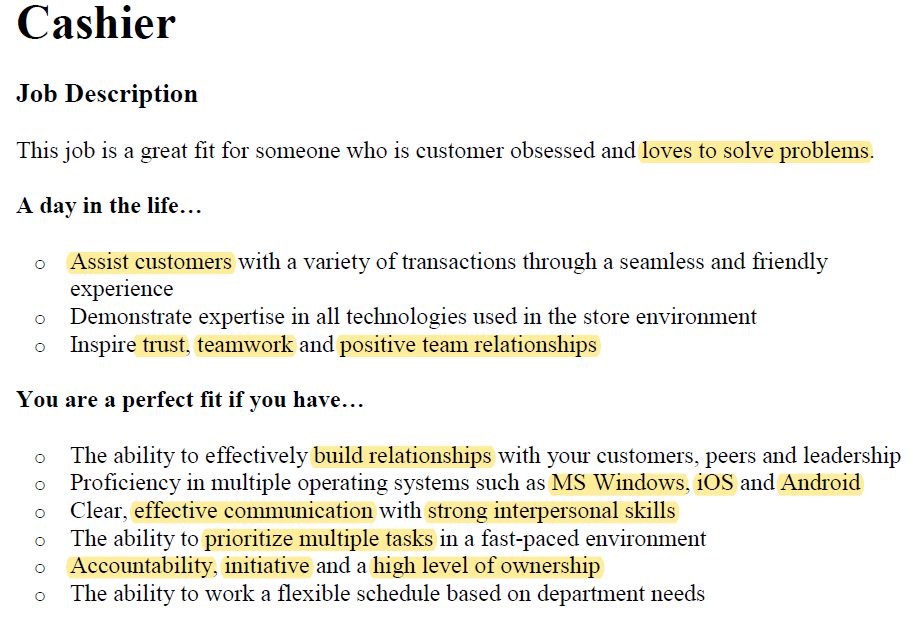
Then create a list of all the qualities described, making sure to write each skill using the same wording that is used in the job posting.
The second way to figure out what skills are needed for a job is to search for people on LinkedIn who are already performing the role.
By searching for a certain job title in the search bar, you can find a list of professionals who are already in that job and then search through their profile to see what skills they have listed, both in their summary and experience sections.
Step #3: Match your master list with the skills needed for a job
The skills you write on your resume should be whatever overlaps between your master list and the list of skills you created from researching jobs.
By using this technique, you will be making sure that the skills you have listed on your resume are relevant to the jobs you are applying for.
A general rule of thumb is to never include skills that aren’t important for the job you are applying for.
For example, if you are applying for a project manager position, there is no need to list that you know yoga or CPR.
Top 50+ Skills Hiring Managers Look For On Resumes
A lot of research has been done as to what hiring managers look for on a resume. Many of the skills they seek are job-specific, while others are transferable.
To increase your chances of getting called in for an interview, include these top skills throughout your resume.
These professional skills are divided by category to help you find the skills that are relevant to you.
Soft Skills
Basic computer skills, customer service, project management, art & design, human resources, fastest ways to obtain new skills.
Are you looking for your first job? Are you missing some of the required skills on a job posting? If so, don’t worry. There are a range of ways for you to obtain the needed skills quickly.
If you are in need of a hard skill, this task is much easier. Hard skills are learned, so you can typically find an online resource, school, or curriculum to pick up the needed skills.
If you don’t have enough time to attend class in person, there are a number of online learning platforms with courses that you can take online, in your spare time. Some examples of popular eLearning platforms include Lynda, Udemy, and Skillshare.
Learning soft skills are a little trickier. These interpersonal and personality traits are hardwired into humans, so the only way to get better at them is to practice, practice, practice.
If you can’t practice soft skills while on a job, try to find some day-to-day activities that you can practice these skills during.
For example, if you need to work on punctuality, set a goal to arrive 5 minutes early wherever you need to be, no matter if it is for class or for coffee. Or if you need to work on your professionalism, pick up a volunteer job based in a professional, office setting.
More Skill-Related Articles For Resume Writing:
- How To List Hard Skills On A Resume (50+ Technical Skill Examples)
- How to List Computer Skills on a Resume (50+ Computer Skill Examples)
Resume Templates
Resume samples
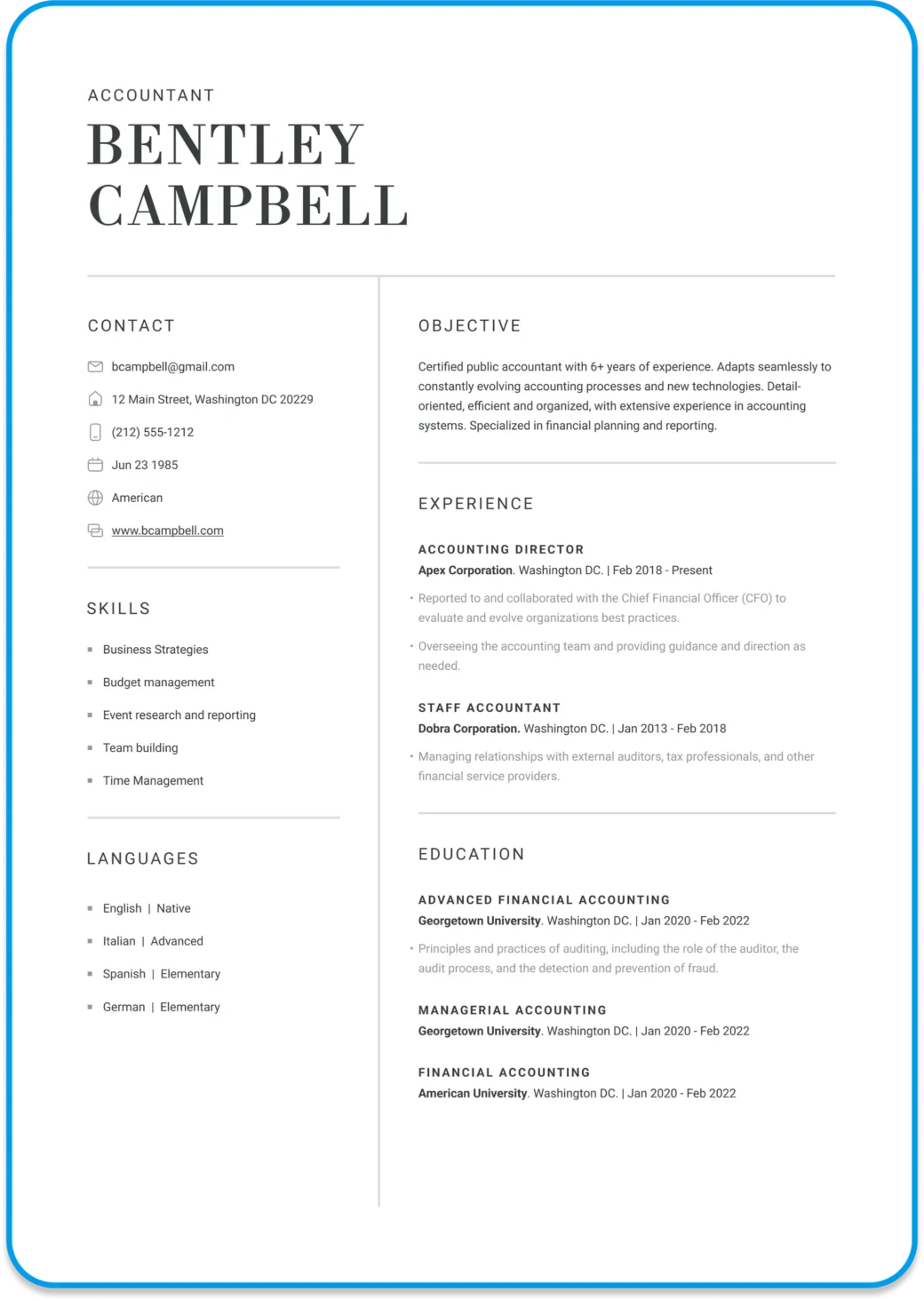
Create and edit your resume online
Generate compelling resumes with our AI resume builder and secure employment quickly.
Write a cover letter

Cover Letter Examples
Cover Letter Samples
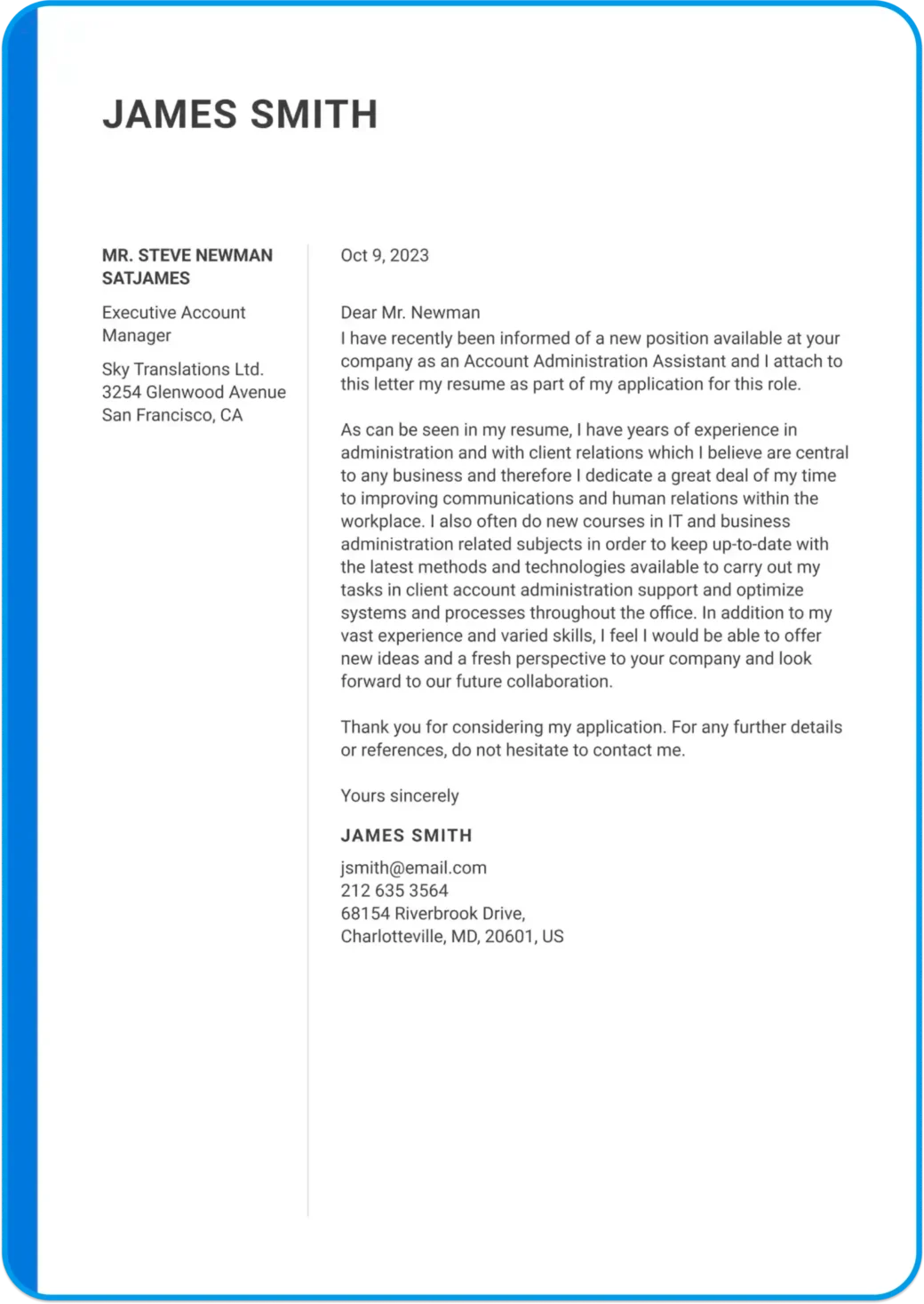
Create and edit your cover letter
Use our user-friendly tool to create the perfect cover letter.
Featured articles
- How to Write a Motivation Letter With Examples
- How to Write a Resume in 2024 That Gets Results
- Teamwork Skills on Your Resume: List and Examples
- What Are the Best Colors for Your Resume?
Latests articles
- Top 5 Tricks to Transform Your LinkedIn Profile With ChatGPT
- Using ChatGPT to Prepare for Interviews: Top Tips and Steps
- How to Create an Effective Cover Letter with ChatGPT
- 10 Jobs in High Demand in 2024: Salaries and Expected Growth

Dive Into Expert Guides to Enhance your Resume
Why Presentation Skills Can Make the Difference on Your Resume

Giving a speech in front of people isn’t always everyone’s favorite task. However, having solid workplace presentation skills can serve you well in many different ways.
Of course, one of the most important reasons being an accomplished presenter can stand you in good stead is that it looks great on your resume . Working information about your ability to give electrifying speeches always gives a positive impression.
We’re going to briefly look over some of the most important reasons to hone your public speaking skills . As you’ll see these can be easily worked into your resume using a number of different methods.
How Do Presentation Skills Give You An Advantage in The Workplace?
There are lots of good reasons why companies want and need good presenters . These essential team members can help to create a positive reaction and communicate the values of the business effectively.
This is not just practical for your employer but offers many advantages for you as a candidate too . Generally speaking, learning how to be an accomplished presenter will help you in the following ways:
- You’ll find it easier to perform in interviews
- You’ll come across well when meeting clients
- You can communicate better with fellow employees
- You’ll be able to teach other staff on how to give presentations
- You can represent the company at conferences and events
- You’ll find it easier to respond to emergencies
Which Presentation Skills Have the Biggest Impact?
There are a number of abilities that a seasoned presenter can add to a resume’s skills section . These will be gained from not only doing the task itself but also from doing the work that goes into the preparation stages .
By knowing everything that goes into a good performance you can then use examples to show you’ve got the sorts of abilities a hiring manager is looking for. These might include:
- Organization
- Good people skills
- Timekeeping
- Expert Communication
- Flexibility
- Pre-preparation
- Visual data
- Improvisation
- Creating visuals and slides
- Preparing accompanying literature
- Working with an audience
- Ability to think quickly
How Can Presentation Skills Be Shown on My Resume?
A resume is a bit like a presentation itself, albeit expressed via the written word rather than the spoken form. It must be structured effectively , be clear in its communication, and focused on its goals of getting you hired.
There a few different sections found on a resume that can allow you to show off your presentation ability.
Of course, your career history should be one of them. In the work experience segment of the resume, you can highlight information such as :
- The size of audiences
- How many speeches you gave a year
- What level of technical knowledge you had to demonstrate
- How you made your talk effective
In addition to this and dropping in a few public speaking strengths in your skills section, you may consider adding another heading about any conferences or seminars where you have given keynote addresses . This will help the recruiter gauge your level of expertise in presentations much more effectively.
Finally, if you’ve done any training that has helped make you an expert speaker, this should also find its way into your education section . If you haven’t done any courses in public speaking , don’t worry. As you’ll see below there are options available to upgrade your abilities.
How Can You Improve Your Presentation Skills?
If you want to start honing your presentation skills, a good place to start is with a training course . This will be able to take you through all the key organizational and speaking considerations you’ll need when giving a speech.
Public speaking courses can be done at local education centers or online quite easily, allowing you to learn the ropes of this highly useful discipline.
However, if you don’t have the time or money to do a full coaching program, don’t worry. You can instead opt for a hands-on approach by volunteering for speaking opportunities in your current position or by getting some practice with interviews for new jobs. Like many abilities, public speaking gets easier the more you do it .
Top Tips on Presenting Effectively
There are so many ingredients that go into a great presentation. Naturally not every speech is the same, but many of the same elements will come up. The main tips you should keep in mind before giving a speech are as follows:
- Keep your calm
- Be prepared
- Dress smart
- Measure the pace of your speech
- Show you care about the subject
- Engage with the whole audience
- Look and listen out for feedback
- Ask questions
- Stay flexible
Communication is always a highly prized skill in the workplace and being an effective public speaker is a great way to demonstrate that. By making sure the details of your ability to give a mean presentation are present on your resume you’ll be able to put your skills to the test in your new better job.
Designing a resume with ResumeCoach can take some of the time and effort out of creating a document that will showcase your public speaking skills. Our step-by-step resume building tools and easy to tweak templates are fully optimized so your professional profile can be submitted easily electronically and impress with their visuals.

Struggling with Resume Writing?
Ease the process with our templates
Related Blog


IMAGES
VIDEO
COMMENTS
These days, no set of public speaking skills is complete without some sort of familiarity with technology. For example, skills in this area include the ability to create presentation slides and manage the functional operation of a presentation. But it can strike horror into the heart of any audience member when a speaker stands up, declaring ...
The following steps show you how to write your resume to include presentations, public speaking events and other conferences you participated in: Create a section for presentations. Place the most relevant presentation first. Include the presentation title in italics. List the name and date of the conference.
What are the best ways to showcase your presentation skills on your resume and portfolio? Powered by AI and the LinkedIn community. 1. Use action verbs and keywords. 2. Include relevant examples ...
How to demonstrate PowerPoint presentation skills on your resume: Held a business presentation in front of the board of directors. Taught interns how to use advanced features in PowerPoint. Designed PowerPoint project templates for every department of the company. Created a complete library of documents that contain different information ...
A resume for a full-time public speaker is going to look very different from one where it's an occasional duty. Search the job description for specific public speaking skills you'll need in the job. Brainstorm examples of when you've used similar skills in a professional context. Try to come up with one example for each job duty listed.
How to Highlight Presentation Skills on Your Resume. Ways you might indicate to an employer that you possess strong presentation skills include the following: Highlight it in Your Skills Section. This is an obvious choice, but it can be effective. In the section of your resume where you may list special skills, include presentation skills as ...
If the job ad mentions presentation skills, not only do you need to list them on your resume, but your resume as a whole is a form of presentation, itself. So— This is how to get it right: 1. Presentation Skills on a Resume. These days, more and more companies are using the ATS to assist in the hiring process.
Analytical skills are necessary skills for public speaking. The ability to gather, understand, and break down data can help you more easily present and report the results of the analysis to a broad audience. Planning skills are the key to a great presentation or public speech. Demonstrate your ability to accurately estimate the time and effort ...
There are plenty of ways to improve your presentation skills. Here are a few: Practice, practice, practice: Practice your presentation until it becomes second nature. This will help you stay quick on your feet and easily answer follow-up questions. Be passionate: Show your enthusiasm on the subject.
Let's examine some of the most prominent presentation skills you can add to your resume. #1. Research Skills. The ability to do research is crucial for ensuring that the information in the presentations you give is accurate and credible. Effective presentations rely on well-researched content that is backed up by relevant sources and data.
Let's start with a few quick steps for adding presentations to your resume: Choose where you're going to list presentations. This could be in your work experience, resume summary, or in their own section (more on this later). List the name or topic of the presentation. Specify where you presented or who you presented to.
1. Include the presentation title. First and foremost, start by including the presentation title. You could also distinguish the text by using boldface, to make it stand out more on your resume/CV. If the presentation has a long title, you could shorten it to briefly illustrate what your presentation is about. 2.
Use Relaxation Techniques #7. Acknowledge That You're Nervous #8. Tell stories #9. Be humorous #10. Use visual aids and media #11. Engage the audience 6 Ways to Improve Your Presentation Skills How to Add Your Presentation Skills to Your Resume #1. List Your Presentation Skills Under Your Soft Skills #2.
Consider the following steps for writing a resume with presentations: 1. Create a resume section for research or presentations. Create a section of your resume for your presentations or research for an organized layout. You can place this section under your employment history to put your presentation in context with your experience.
12 presentation skills to master. When you contemplate the need to give a presentation, the following key skills should steer you along the right path. There is no such thing as a perfect presentation (communication can always be improved) - you just need to reach most of your audience with the majority of what you have to say.
2. Choose your most relevant communication skills. Since you only need to list your most marketable skills on a resume, choose the abilities you believe best showcase your expertise. Base your choices specifically on the job qualifications listed in the description for the position you're pursuing. 3.
1. Resume Header. At the top of your resume, directly below your name, write your job title along with the three most relevant skills you have as a candidate. This is the first section hiring managers will be reading, so it is important to draw their attention using bold and large lettering.
Engage with the whole audience. Look and listen out for feedback. Ask questions. Stay flexible. Communication is always a highly prized skill in the workplace and being an effective public speaker is a great way to demonstrate that. By making sure the details of your ability to give a mean presentation are present on your resume you'll be ...
Presentation skills are actually varied and usually require a number of different skills working together, such as these: Eye contact. Ability to create visual aids. General communication skills. Hand gestures. Body language. Organizational abilities. Self-confidence. Speaking skills.
Their hard skills include all the clinical competencies required to perform the job of nursing, while soft skills may include communication and integrity. These are among the best skills a nurse could list on their resume: Hard skills. Soft skills. • Patient assessment. • CPR and BLS skills.
10. Decision-making skills. Many jobs require you to make choices all the time. For example, picking a new vendor for office supplies, making cuts to a budget, deciding to bring other people in to solve an issue, or prioritizing work tasks on your to-do list all require decision-making skills.
Here are 12 of the most popular industry-specific hard skills to list on your resume: 1. Design. Companies in nearly every industry need creatives with a strong sense of design to help them develop attractive products and content. Specific examples of design-related hard skills include: UI/UX design. Photography.
2. Check the job ad. To create a job-winning resume skills section, list skills that are: relevant to the position. mentioned in the job description. While job descriptions often explicitly mention skills that are required or preferred, job ads sometimes hint at desired skills as well.